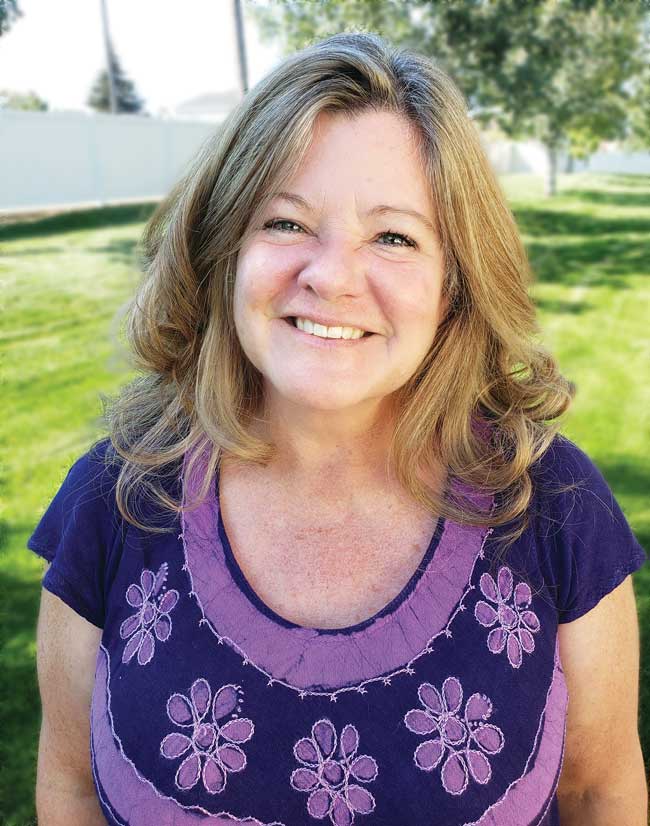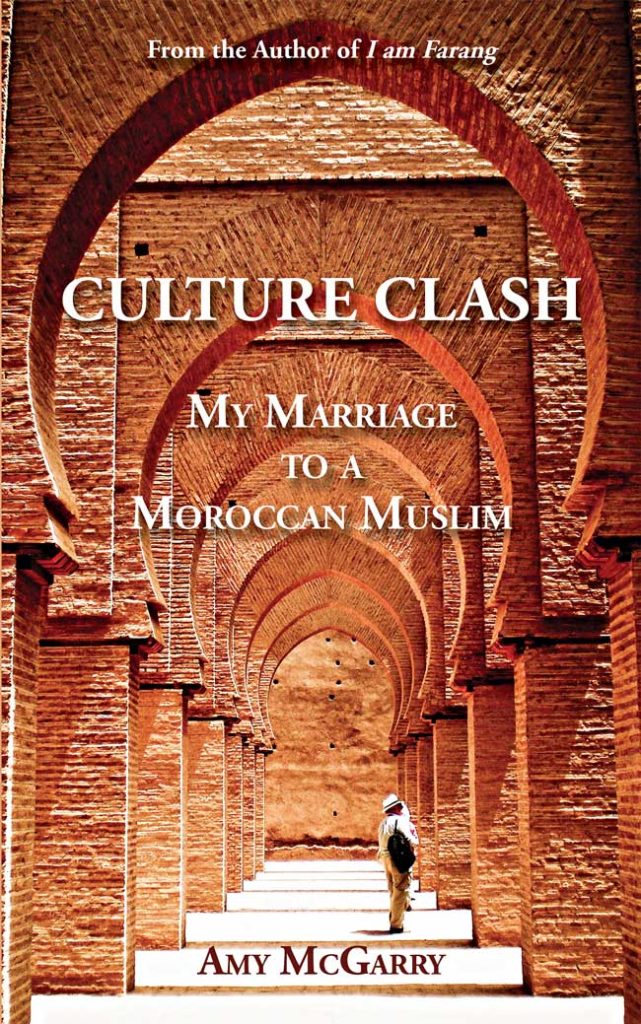In Amy McGarry’s first book, I am Farang: Adventures of a Peace Corps Volunteer in Thailand, she recounts meeting her future husband, leaving questions unanswered about what happened after she and Mustapha went their separate ways. In her latest book, Culture Clash: My Marriage to a Moroccan Muslim, she details the four-year long-distance courtship that results in their marriage. She also candidly discloses the challenges of an intercultural marriage. The following is an excerpt from Culture Clash.
May 2008, Laayoune, Morocco
Could this really be happening? I was having a “wedding” today, whatever a wedding means in Morocco. Except for choosing the date, I had nothing to do with the planning; I hadn’t made a single preparation for my wedding. I didn’t have a wedding dress or bridesmaids. I never thought once about a cake or flowers, a menu, a DJ or a band for the reception. I only wished someone from my family could be here.
………………………………………………………………………………………………………………..
My sisters-in-law escorted me to my throne for the henna painting. Once finished with the henna application, I sat on my throne like the Queen of Sheba, crowned and bejeweled, arms and legs spread awkwardly wide so the henna could dry. It dawned on me; this was my wedding. This was the happiest day of life. So, I did what any girl does on the happiest day of her life. I started crying. As the sisters-in-law began to notice my tears, they came to me, chattering and clucking to each other. Was something wrong with the American lady? Did she feel sick? I realized that I didn’t know if Moroccan women ever cry in public.
I didn’t feel sad. I was simply overcome with feelings. Overwhelmed by the whole experience, I’d reached my emotional tipping point. Furthermore, I always cry at weddings.
I asked for Mustapha. I needed a familiar face. I needed someone who spoke English. I needed my husband.
Asma, the quiet, hijab-clad sister-in-law, came and sat next to me. With her pointer finger, she drew an imaginary tear running down her face. She held up her hands and shrugged her shoulders, in a perfect pantomime of “Why are you crying?” It was a caring gesture I will forever remember and be grateful for. I wondered if, perhaps, having recently gotten married herself, which she may have had little say in at all, she might have been worried that I was having second thoughts. She knew more about what I was getting into than I did.
I tried to assure her I was okay, that I was happy. I smiled through my tears, shook my head. No, nothing was wrong. I asked for Mustapha again, my rock, my comfort.
Finally! My Prince Charming arrived. He would comfort me, take care of me, make everything alright.
Instead, he leaned against the wall, pointed at me, and laughed.
Still wiping the tears, my elation at seeing him turned to stunned confusion.
“Why are you laughing at me?”
Did he tell me I looked beautiful? No. Did he take my hand, wipe my tears and say, “Aw my sweet darling, it’s going to be okay:” No. He just kept laughing at me. I became angrier and angrier.
Who was this man I was marrying? Was I making a mistake? I considered lacing on a pair of sneakers and pulling a runaway bride. However, the reality of running in my heavy gown, jewels and crown through the desert town sounded worse than making the wrong marriage choice at this time.
In Morocco, as in countless countries around the world, women marry men they barely know all the time. I was convinced I knew my husband’s heart instinctively from our time together in Thailand and our years of a long-distance courtship. The truth was, I had very limited knowledge of him within the context of his own culture, within his own family. Hell, the truth was I knew little of him in almost any environment, situation, or circumstance. While I was very conscious of this fact, none of it mattered. I trusted my instincts in marrying him.
My groom departed again, leaving me with a sick feeling in my stomach. With terrible timing, the women emerged from the kitchen with plates of food. They took turns sitting next to me and literally spoon-feeding me couscous, until finally the other guests arrived. First came Mustapha’s sisters, along with the children and the aunts, then finally the men, who suspiciously all snuck upstairs.
………………………………………………………………………………………………………………..
During our ceremonial entrance, the women made trilling sounds with their tongues, a Berber version of the wedding march, akin to Pachelbel’s Canon in D, or formerly, “Here Comes the Bride.” This was my “walk down the aisle” so to speak, and I fought back tears. This was my wedding. I always cry at weddings. Furthermore, here I was, getting married, and not a single member of my own family was with me to experience it. The women’s tongue trilling affected me viscerally, primally, like an ancient drum-beat reverberating through my soul. It gave me chills and flooded me with emotions I couldn’t name.
Music played, as the women all circled Mustapha and me in dance. It felt far too festive for tears. Women’s arms raised in the air, swaying and shimmying in time with the music. Smiles on their faces, they’d make an occasional shout out with a tongue trill to remind us of Berber culture.
While so many differences stand out between the Moroccan wedding ceremony and the American, perhaps the biggest difference is that the Moroccan ceremony includes no vows. In fact, at least in our wedding ceremony, the bride and groom said no words at all. Nor was there any officiating of the ceremony, not by an imam (Islamic religious leader), or a family member, friend, or anyone. I never said, “I do.” We never said, “in sickness and in health, ‘til death do us part.” Nor did we write our own vows from the heart, in which we declared our undying love for each other.
Perhaps it was in the paperwork. But I wouldn’t know. All the paperwork is in Arabic. It made me wonder what else I signed up for.




